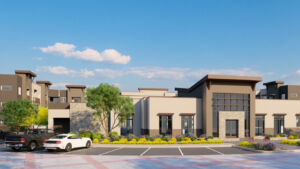Leasing commercial space in a new city is one of the biggest steps any business owner can take. While the potential for growth, visibility, and fresh opportunity is exciting, it also brings along a hefty dose of the unknown. Every city has its own market trends, zoning regulations, customer demographics, and real estate quirks. That’s why it’s essential to approach the process with a clear understanding of what questions to ask before signing a lease. Whether you’re opening a storefront, setting up a new office, or launching a distribution hub, your success depends heavily on the decisions you make during this early stage. Asking the right questions will not only protect your business legally and financially but also position you for long-term success in your new environment.
What Are the Local Zoning Laws and Restrictions?
Before anything else, confirm that the space is legally permitted for your intended use. Cities often have strict zoning laws that dictate how commercial properties can be used. For example, a location zoned for retail may not permit manufacturing or office work without a variance. Knowing this upfront saves time and prevents costly legal headaches later. Speak with both your broker and the city’s zoning office to get clear answers.
What Is Included in the Lease Agreement?
Not all leases are created equal. You should clarify exactly what’s covered in your agreement. Is it a full-service lease, where the landlord handles all maintenance and utilities? Or is it a triple-net lease, where you’re responsible for taxes, insurance, and upkeep? Understanding the structure of your lease helps you anticipate additional costs and avoid budget surprises down the road.
How Will This Move Impact Your Operational Costs?
Relocating to a new city affects more than just rent. Consider how transportation, employee wages, utilities, and taxes may change. In some cases, moving to a different city can actually reduce the costs of doing business overall. You might find cheaper labor markets, lower utility rates, or tax incentives for businesses relocating to underdeveloped areas. Evaluate all these factors before committing to the lease.
Commercial Space in a New City: How Is the Local Market Performing?
Understanding the commercial real estate market in your new city gives you context for lease pricing, property demand, and location desirability. If rental rates are dropping, you might be able to negotiate better terms. On the other hand, in a high-demand market, you’ll want to act quickly before another tenant swoops in. Speak with a local commercial realtor who knows the ins and outs of the area and can offer advice on timing and trends.
What Is the Condition of the Property?
Always tour the space in person and inspect it thoroughly. Ask about the age of the HVAC system, plumbing, electrical setup, and roof. Are there any known issues that the landlord is obligated to repair before you move in? Even if the space looks modern on the surface, underlying problems can lead to downtime and unexpected maintenance bills. Don’t hesitate to bring in a professional inspector if you’re unsure.
Are There Any Build-Out or Renovation Options?
You may love the location, but what if the layout doesn’t quite work for your needs? Ask the landlord if you’re allowed to make alterations or customize the space. Some leases offer a tenant improvement allowance to cover renovation costs. Others may allow changes but expect you to return the property to its original condition when the lease ends. Knowing your options helps you budget more accurately and align the space with your brand and workflow.
How Long Is the Lease Term and What Are the Renewal Terms?
Lease length is a crucial factor in your decision-making. A longer lease might offer a lower monthly rate, but it locks you in for a substantial period. If your business is in a growth phase or still uncertain, a shorter lease with renewal options might be more appropriate. Always ask whether you have the first right of refusal on renewals or if your rent will increase after the initial term.
What Kind of Foot Traffic and Visibility Can You Expect?
If your business depends on walk-in customers, traffic counts and visibility are key. Ask about nearby businesses that may drive foot traffic to your door. Is there ample signage space? Is the building easy to find and access? Visit the location at different times of day and week to observe how busy it gets. These observations help you gauge whether the space aligns with your target customer base.
What Are the Parking and Accessibility Conditions?
Easy access can make or break a business. Ask about parking availability for both employees and customers. Are there dedicated spaces, street parking, or a shared lot? For businesses relying on deliveries or pickups, loading dock access or proximity to major roads might be just as important. Don’t forget to assess ADA compliance and access for customers with mobility needs.
Are There Any Restrictions on Business Operations?
Some landlords place limitations on operating hours, noise levels, signage, or even the types of businesses that can lease neighboring units. These restrictions could limit your ability to run promotions, extend hours during busy seasons, or personalize your storefront. Always review the lease for clauses that may impact how you operate, and ask for clarification on anything that’s unclear.
Who Handles Maintenance and Repairs?
Responsibility for maintenance is often a sticking point in commercial leases. Will the landlord handle broken HVAC systems, plumbing issues, or snow removal? Or will those costs fall to you? A space with lower rent may come with higher upkeep responsibilities. Ask for a copy of the maintenance plan or service agreement, and be clear about what you’re expected to handle.
What’s the Exit Strategy if Things Don’t Work Out?
Business is unpredictable, and sometimes leases must end early. What happens if you need to close, downsize, or move? Ask about the lease termination policy and whether there are penalties or fees involved. In some cases, you may be allowed to sublease or assign the lease to another tenant. Planning your exit strategy in advance gives you more flexibility if your circumstances change.
What Are the Surrounding Businesses and Community Like?
Your business doesn’t exist in a vacuum. The surrounding neighborhood and nearby businesses can have a big influence on your success. A trendy district with foot traffic could boost exposure, while an isolated industrial area might suit logistics or warehousing better. Check for competitors nearby, but also look for complementary businesses that could lead to valuable partnerships or referral traffic. Understanding the local vibe helps ensure your business fits in.
Is the Space Scalable for Future Growth?
Think beyond your current needs and consider what your business might look like a few years down the road. Is there room to expand within the same building or complex? Will your lease allow you to take on additional square footage if needed? Asking these questions now helps you avoid a costly second move later and positions your company to scale seamlessly.
Who Is the Landlord or Property Manager?
The person or company managing your lease can impact your entire experience. A responsive, professional landlord who invests in property upkeep makes life easier. On the other hand, a distant or unresponsive landlord can create challenges. Try to learn more about their reputation through reviews or by talking to current tenants in the building. A good relationship with your landlord can lead to smoother negotiations, quicker repairs, and a more enjoyable lease overall.
Final Thoughts: Lease Smart, Grow Confidently
Choosing a commercial space in a new city is a bold step, but it doesn’t have to be overwhelming. Asking the right questions—and getting clear answers—empowers you to make strategic choices for your business. From understanding the lease terms to evaluating the neighborhood and anticipating growth, every detail matters. Take your time, do your research, and don’t be afraid to seek professional advice along the way. The more prepared you are, the easier it becomes to lay the foundation for a successful and profitable future in your new location.




